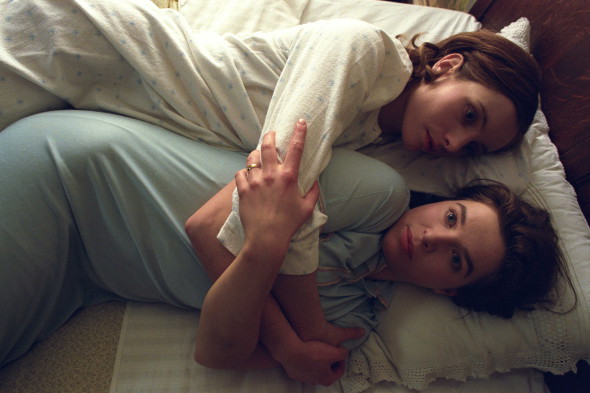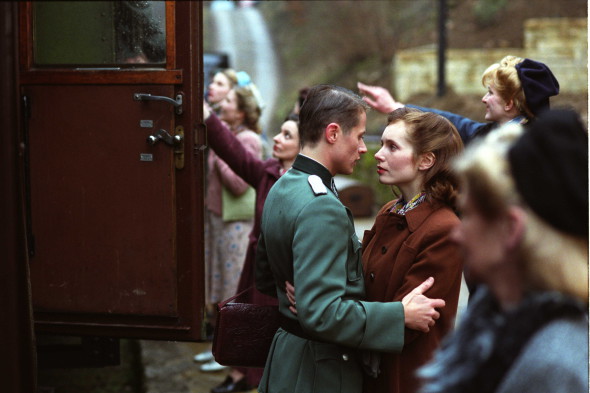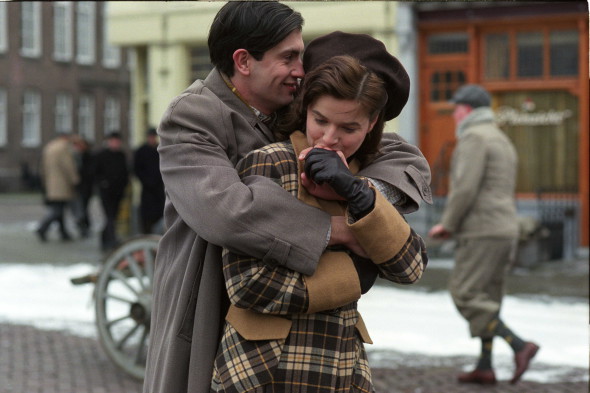
De Tweeling (Blu-ray) – Movie Review
Twins will always be somewhat special. Although the thought of having a twin brother or sister might sometimes appeal more to those who don’t have a twin sibling than to those who do, there is no denying the fact that it is rather special to be part of such a relationship. Always having a playmate, someone to come with you on your first day of school, someone to talk to on your way home, it is priceless. But what would happen if, due to circumstances, twins get separated? The bond might seem broken forever, but then again, this bond might also be stronger than one would expect.
It’s the 1920s when twin sisters Lotte (Thekla Reuten) and Anna (Nadja Uhl) Bamberg, only six years old, are orphaned. They used to live in Germany, sometimes visiting family in Holland with their parents. Now that they’re alone, someone will have to look after them. Due to a feud with next of kin, the girls are separated: Anna grows up with her German uncle and has to work hard on the farm, while Lotte finds a new home with their family in Holland, living an almost carefree life. Anna has to endure the bad temper of her uncle’s wife Martha and although she would love to go to the gymnasium so much, she isn’t allowed to. Meanwhile Lotte gets every chance to develop her musical talent and study at the university. The two never hear from each other again for quite some time, despite constantly writing letters, which makes it even worse being apart.
Right before the World War II, in 1939, the girls finally meet again. Anna is now a housemaid for a baroness and after finding her address, Lotte decides to visit her at the baroness’ estate near Cologne. When she sees how Nazism is already so established in the life of the Germans, including Anna’s, something snaps inside Lotte. They believe Hitler will give them a better chance in life. This is very difficult to understand for Lotte, who is brought up in a liberal-minded environment, and just got engaged to the Jewish David (Jeroen Spitzenberger). Anna marries soon after with the German soldier Martin Grosalie (Roman Knizka). War is coming soon and the sisters are divided once again. Lotte leaves her sister with mixed feelings, not understanding how she can support the rising Nazi party, while Anna is above all very happy that she saw her sister once again after all these years. It will take a long time for the two to meet again, and one thing is certain: the war will change them both.
With a runtime of more than two hours, there should be ample time to tell a rather elaborate story in a decent way. Nonetheless the pace is quite slow, focusing more on the childhood and youth of both sisters, rather than on their experiences during the war. This makes it very clear to see the difference between both lives. Lotte gets all opportunities in life while Anna isn’t even allowed to go to school. It is clear from the start that their lives will be very different and that this will play a vital role in their relationship.
Their life story is being told as a frame story. We meet Lotte and Anna when they are in their seventies, coincidentally (or maybe not so much) meeting in Spa. Anna tries to start a conversation with her, but Lotte would rather just ignore her. This makes it very obvious from the start that something must have gone seriously wrong in the past. While watching the film it becomes clear that the events during the war are what tore the sisters apart for good. Although this is an important event in the film, it seems as if the main question that needs to be answered is whether the sisters will finally make up for what happened so long ago, and forgive each other. ‘Bound for life, separated till death’, can be read on the box.
Acting performances are on the other hand absolutely worth mentioning. We see Lotte and Anna as children, as young women and as old rheumatic women. All of these roles are acted in a very convincing manner. The filming also adds to the performances. Lighting is a bit dim, making the story look more dramatic and convincing. Also the switching between German and Dutch languages felt very natural and smooth.
Conclusion
Ben Sombogaart made the right choice not to opt for a rapid pace, which allows the viewer to really get to know the characters and the situations they are in. Some events from the book by Tessa de Loo this film is based on were cut, which is too bad, as it might have added a nice extra dimension. Nonetheless, choices need to be made and the story will not leave you untouched. You will be very well able to enjoy De Tweeling when you want to take the time and are in the right mood.
De Tweeling (Blu-ray) - Movie Review,







No Comments